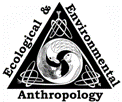Wildlife Damage Management, Internet Center for

Ecological and Environmental Anthropology (University of Georgia)
Date of this Version
November 2006
Abstract
In this paper I address the general perception that agricultural activities are the principal threat to primate biodiversity in the tropics and argue that in Neotropical landscapes some agricultural practices may favor primate population persistence, and that this situation merits attention and investigation. To explore these issues, I examined three interrelated pressures upon tropical forests for the Mesoamerican and Amazon basin regions: human population growth trends, levels of poverty and human development and deforestation rates. I also present relevant results of recent surveys completed on the presence and activities of primate populations in agroecosystems in several landscapes in Mesoamerica. I further assess the possible benefits of primates to agroecosystems, and stress the value for primate conservation of some agricultural practices in the Neotropics. Human population in Mesoamerica (ca 48 million) and Amazon basin (ca 300 million) regions has been growing at a rate of 2.6-3.0% per year since the 1950’s, and it is expected that populations will double in size in 25-35 years. According the United Nation’s Human Development Index, high poverty and low human development are typical of the human population in both regions. Pressures upon the land for living space and for food production are paralleled by high deforestation rates in both regions, ca 440,000 ha/yr in Mesoamerica and ca 3.5 million ha/yr in the Amazon basin. Our surveys in landscapes in Mexico, Guatemala and Costa Rica found populations of five of the eight primate species existing in Mesoamerica, temporarily or permanently living in an array of 15 agroecosystems, suggesting these habitats may be important for their persistence. With this information at hand, I further assess the possible benefits of presence and activities of primates to agroecosystems, stress the value for primate conservation of some agricultural practices in the Neotropics, and point out needed areas for further investigation.

